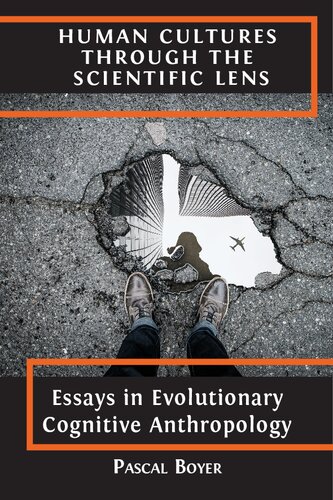

Most ebook files are in PDF format, so you can easily read them using various software such as Foxit Reader or directly on the Google Chrome browser.
Some ebook files are released by publishers in other formats such as .awz, .mobi, .epub, .fb2, etc. You may need to install specific software to read these formats on mobile/PC, such as Calibre.
Please read the tutorial at this link: https://ebookbell.com/faq
We offer FREE conversion to the popular formats you request; however, this may take some time. Therefore, right after payment, please email us, and we will try to provide the service as quickly as possible.
For some exceptional file formats or broken links (if any), please refrain from opening any disputes. Instead, email us first, and we will try to assist within a maximum of 6 hours.
EbookBell Team

4.1
50 reviewsThis volume brings together a collection of seven articles previously published by the author, with a new introduction reframing the articles in the context of past and present questions in anthropology, psychology and human evolution. It promotes the perspective of 'integrated' social science, in which social science questions are addressed in a deliberately eclectic manner, combining results and models from evolutionary biology, experimental psychology, economics, anthropology and history. It thus constitutes a welcome contribution to a gradually emerging approach to social science based on E. O. Wilson's concept of 'consilience'.
Human Cultures through the Scientific Lens spans a wide range of topics, from an examination of ritual behaviour, integrating neuro-science, ethology and anthropology to explain why humans engage in ritual actions (both cultural and individual), to the motivation of conflicts between groups. As such, the collection gives readers a comprehensive and accessible introduction to the applications of an evolutionary paradigm in the social sciences.
This volume will be a useful resource for scholars and students in the social sciences (particularly psychology, anthropology, evolutionary biology and the political sciences), as well as a general readership interested in the social sciences.